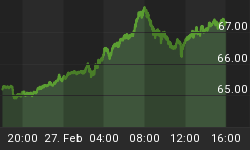As tensions rise among Iraqi Kurds in the country's north, Sunnis in the south and the Shi'ite-led government in Baghdad over the distribution of natural resources, Turkey is setting its sights on an unconventional alliance with the Kurdistan Regional Government (KRG).
This is a gamble Ankara is willing to take, despite the potential implications it could have for Kurds on its own territory. Indeed, as recently as 2009, Ankara had a very different view on the KRG, going as far as to label its leader, Masoud Barzani, a "bandit" who was turning a blind eye (at best) to Kurdish militants using Northern Iraq as a base to launch cross-border attacks on Turkey. The Kurdistan Workers Party (PKK) has been fighting the Turkish government for more rights for decades.
So when Ankara began announcing a series of bilateral deals with the KRG (deals that went above Baghdad's head), everyone's first question was why would Turkey want to align itself with an Iraqi Kurdish leadership that is clearly making a play to create a sovereign Kurdish state?
According to intelligence analysts at Jellyfish, this is not such an unexpected or even illogical development from Turkey's standpoint. "It is important to understand that Northern Iraq is a major market for Turkish exports and that oil and gas from coming Iraqi Kurdish territory is moved on to worldwide markets through Turkey," Jellyfish President Michael Bagley told Oilprice.com.
"From a financial and logistical standpoint, an Ankara-Erbil marriage is one of exceptional convenience. From our standpoint, Northern Iraq stands to be one of the next great investment areas in the Middle East, and so far, the KRG has managed to out-play Baghdad in the natural resources and investment game."
Last October, the KRG signed a highly controversial deal with ExxonMobil to explore for hydrocarbons in Northern Iraq. The deal was signed without Baghdad's consent, and without even consulting Baghdad, which perceives the deal as illegal. In May, Baghdad attempted to auction off another set of exploration blocks, but none of the big international players bid, balking at (among other things) clauses forbidding anyone to deal exclusively with the KRG.
Also in May, as reported on Oilprice.com, the KRG and Turkey announced plans to build a pipeline connecting Ceyhan, Turkey, with northern Iraq and that this pipeline could carry one million barrels of oil per day and could be completed as early as August 2013. A second addition to the pipeline would connect it directly to the existing Kirkuk-Ceyhan pipeline by 2014. The KRG plans to export crude oil to Turkey, which will be refined in Turkey and re-exported to Northern Iraq.
A highly significant but oddly underreported development that will boost the KRG's power play for autonomy in Northern Iraq was the expression of support, in early June, by the governor of Ninewa (Ninevah) province for the KRG's deal with ExxonMobil.
Ninewa province Governor Atheel Nujaifi--from his seat in the provincial capital of Mosul--officially aligned himself with the KRG's oil rights moves against Baghdad, tipping the balance of power in the KRG's favour over the issue. The Ninewa seal of approval also bodes well for Exxon as it signifies that there will be less violent opposition from local leaders over its move to court the KRG.
Here again, Baghdad loses out. Ninewa today is one of the last bastions of al-Qaeda in Iraq, and its blessing of the KRG-ExxonMobil deal is significant in terms of security.
Iraq's oil is Iraq's oil, as far as Baghdad is concerned, and the KRG does not have the authority to sign any export deals on its own, even if it plans to divert revenues from sales to the Iraqi central authority.
The KRG, however, has a number of major power players behind it--from Ankara to Brussels and Washington, all of whom would very much like to see Iraqi oil and gas find an easy way to Western markets.
In the end, Turkey's stance on Northern Iraq may seem like a paradox, but it is a logical move on many levels. With Syria in a state of violent upheaval, militant Kurds that threaten Turkey from across that border are no longer a focal point or indeed even a threat by comparison. And Ankara's burgeoning relationship with the KRG has noticeably softened Kurdish militancy aimed at Turkey in the last couple of years.
Economics has played the greatest role in forging these new relations and Northern Iraq has become a new staging ground for Turkey companies and investment, with Turks owning an estimated 50% of all major businesses operating under the KRG-controlled territory.
Furthermore, the pipeline deal announced between Ankara and the KRG in late May was in part a reaction to pressure to reduce imports from Iran, but it also follows a logical path in the Turkey-Northern Iraq relationship.
Turkey knows that the pipeline deal and other energy deals forged with the KRG will set the stage for the creation of an independent Kurdish state. But in the meantime, Turkey has made such a heavy footprint in Northern Iraq that its level of influence there is and will continue to be immense. As such, Ankara will wield much control over any potential sovereign Kurdish state.
As for the KRG, it shows no signs of backing down in the face of threats from Baghdad, and is hedging its bets that the combination of its natural resource wealth and Western power brokers on its side will give it the advantage. On 11 June, the KRG told a gathering of potential investors at a business convention in the northern capital Erbil that it expected to quadruple oil production in the next three years, and that today's 250,000 bpd would be up to 300,000 bpd by the end of this year. The KRG is already translating this into a boom for other sectors beyond energy.
By. Jen Alic of Oilprice.com















